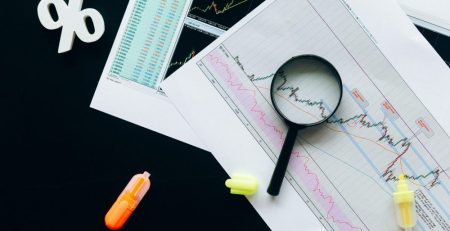What do successful leaders do differently in times of crisis
Depending on the sector, the period from the beginning of 2021 is difficult for companies. But some leaders remain focused on growth even now, and it is this way of staying focused that can ensure the long-term growth of companies and the ability to generate higher returns.
Such leaders have business scenarios for the next stage of this crisis and the post-pandemic period while navigating the shocks of the current economic situation. Crises are an opportunity to shape leaders. It was the case of the previous crisis; it is also the case.
The leaders of these companies have a clear mentality regarding the evolution of the growth cycle of their company and industry. They are prepared to manage their expenses in the short term, and optimize in some areas, but increase them in others while protecting their innovation and sales capabilities. They have also remained dedicated to their long-term growth strategies, and make bold bets when others freeze their investments.
They made resources available before and during the crisis to allow them to invest early in relaunching companies. These performers provided cash before the crisis: compared to other companies, and while they temporarily slowed down spending on operations, research and development, and other areas, they differentiated themselves from their competitors, rapidly accelerating spending during the period. relaunch.
From the experience of the previous crisis, we can say that the triad of success of these leaders is to identify the optimal moment, the areas with potential, and the way to grow. The questions when, where, and how guided them on their path to success as follows:
- When to grow. The biggest winners grew even in the recession, while other companies managed to catch up in about two years.
- Where to grow. Some leaders have reallocated fewer cyclical parts of their existing business from their resources, thus consolidating core business. Others have expanded into adjacent industries to capture new opportunities or complement existing ones, and others have expanded into high-potential foreign markets.
- How to grow. These leaders have gone beyond organic growth initiatives, launching or expanding mergers and acquisitions programs or building new capabilities, such as digital channels and offerings, to increase productivity and improve access to high-growth customer segments.
Experience teaches us that, to ensure profitable growth, managers must rigorously and regularly reassess both their internal capabilities and the forces of the external market. In this way, they can ensure that they allocate their resources correctly to capitalize on the most promising opportunities.
Crises require quick and decisive reactions from business leaders, and the future cannot wait. Successful relaunching requires a mindset calibrated throughout the growth cycle, a long-term vision and commitment to growth, supported by a proactive attitude in achieving it.

Alina Făniță este Senior Partner la PKF Finconta. A lucrat cu companii multinaționale sau firme antreprenoriale din domenii diverse de activitate, pentru a le oferi servicii de audit financiar, due diligence, restructurări de grupuri, audit intern și alte servicii conexe activității de control intern. Este membră a celor mai prestigioase asociații profesionale din domeniu: ACCA (Association of Chartered Certified Accountants), CECCAR (Corpul Experților Contabili și Contabililior Autorizați din România), CAFR (Camera Auditorilor Financiari) și IIA (Institute of Internal Auditors). A absolvit EMBA Asebuss la Kennesaw State University, a fost trainer pentru cursuri IFRS și este invitată ca expert la numeroase conferințe de business. alina.fanita@pkffinconta.ro













